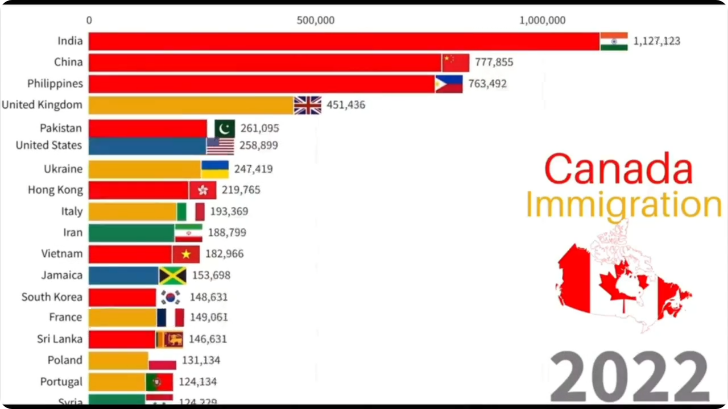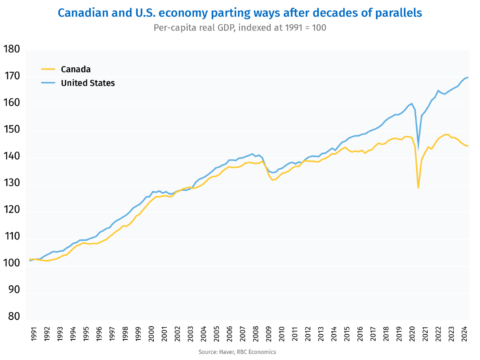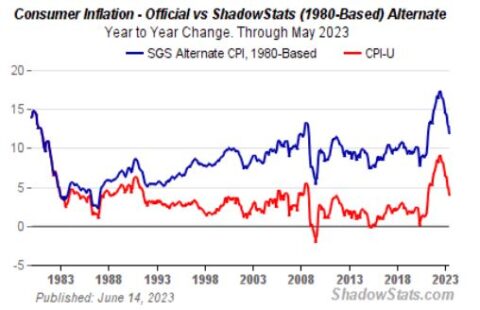If you’re not Canadian or have any Canadian friends, you may not understand just how badly broken the country is — and the federal government is still desperately pretending that we’re all onboard with the Net Zero/Carbon Tax/”you’ll own nothing” bullshit and piling on the long-term debt:
One of Canada’s intelligence agencies, a couple of months ago, sent a memo to the Liberal federal government informing them that, in the near-future years to come, they are worried about revolutionary activity. I believe Canada is a good case study because it seems the country has been a sociological testing ground for the powers that be to see what happens. Canada is a surreal twilight zone where it feels like every psyop known to man is hurled its way. Canada unquestionably has the worst demographic and immigration issues, the worst housing issues, the worst social stability, and upwards mobility issues, all adjusted and proportional to its population and size, of course. For our purposes, I believe Canada serves as the worst-case scenario of how bad the dating market can be, and how bad it will continue to get.
Canada has some of the lowest upward social mobility among developed nations, especially for young people, particularly within the OECD and G8. This means that young people in Canada find it relatively difficult to move up the economic ladder compared to their parents.
In 2022, Canada’s population growth was significantly driven by immigration. According to Statistics Canada, approximately 95% of the population growth in that year was attributed to immigration. This includes both permanent and temporary residents, with a notable influx of international students, temporary workers, and permanent residents. Only a meagre 5% of Canada’s population growth, including recent immigrants, was from organic growth and childbirth. Below are the national origins of immigrants over the last twenty-four years. The combined total number of people entering Canada per year, including international students, temporary foreign workers, legal immigrants, and refugee claimants, is approximately 1,133,770 individuals officially. In reality, the government over the last four years has lost count.
As of April 2024, the average home price in Canada is approximately CAD $703,446. This is €477,121.93 and USD $511,466.93. Would you like to see what $703k CAD can get you in France? Hint: a lot more than in Canada.
This has been noticed so much by Canadians that it is now a meme, with Conservative Party and opposition leader Pierre Poilievre pointing it out in the House of Commons. You can compare the price of homes and the cost of living with Canadian wages. You can also compare how far those meagre wages would go in other first-world countries like France, Germany, or Sweden. The answer is much farther. Much, much farther. There is currently no hope, short of radical action by the government unheard of in Canadian history, for this situation to be rectified. The only other option is best left unsaid.
“Educated” Women Lead
In Canada, among ethnic Canadians, a significant portion of the female population is more educated and makes more money than Canadian men. Canadian men make, on average, CAD $48,500, while women make CAD $42,000. However, only 56% of men have post-secondary education, while 68% of women do. Men have completed higher levels of high school, and women have completed higher levels of college or university. This has led to a massive gap in socioeconomic status between men and women. It gets worse when you include non-ethnic Canadians. Completed levels of post-secondary education for men remain at 56%, while women’s rise to 73%.
We know that in our post-industrial world, resources translate to money. Money and completed levels of education translate to status. Women are 50% more likely to divorce men when they make more money. When women are already the initiators of divorce 70% of the time, it starts looking pretty ugly, fast.



















